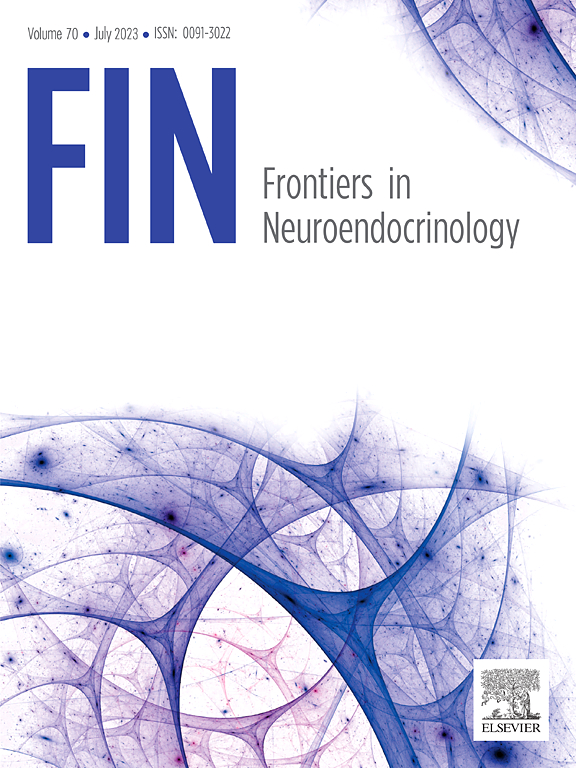Melatonin and brain barriers: The protection conferred by melatonin to the blood-brain barrier and blood-cerebrospinal fluid barrier
IF 6.7
1区 医学
Q1 ENDOCRINOLOGY & METABOLISM
引用次数: 0
Abstract
The blood–brain barrier and the blood-cerebrospinal fluid barrier separate the blood from brain tissue and cerebrospinal fluid. These brain barriers are important to maintain homeostasis and complex functions by protecting the brain from xenobiotics and harmful endogenous compounds. The disruption of brain barriers is a characteristic of neurologic diseases. Melatonin is a lipophilic hormone that is mainly produced by the pineal gland. The blood–brain barrier and the blood-cerebrospinal fluid barriers are melatonin-binding sites. Among the several melatonin actions, the most characteristic one is the regulation of sleep-wake cycles, melatonin has anti-inflammatory and antioxidant properties. Since brain barriers disruption can arise from inflammation and oxidative stress, knowing the influence of melatonin on the integrity of brain barriers is extremely important. Therefore, the objective of this review is to gather and discuss the available literature about the regulation of brain barriers by melatonin.
褪黑素与脑屏障:褪黑激素对血脑屏障和血脑脊液屏障的保护作用
血脑屏障和血脑脊液屏障将血液与脑组织和脑脊液隔开。这些脑屏障通过保护大脑免受异生物体和有害内源性化合物的侵害,对维持体内平衡和复杂功能非常重要。破坏脑屏障是神经系统疾病的一个特征。褪黑激素是一种亲脂性激素,主要由松果体分泌。血脑屏障和血-脑脊液屏障是褪黑素的结合部位。在褪黑素的多种作用中,最有特色的作用是调节睡眠-觉醒周期,褪黑素具有抗炎和抗氧化特性。由于炎症和氧化应激可导致脑屏障破坏,因此了解褪黑激素对脑屏障完整性的影响极为重要。因此,本综述旨在收集和讨论有关褪黑激素调节脑屏障的现有文献。
本文章由计算机程序翻译,如有差异,请以英文原文为准。
求助全文
约1分钟内获得全文
求助全文
来源期刊

Frontiers in Neuroendocrinology
医学-内分泌学与代谢
CiteScore
13.30
自引率
6.80%
发文量
62
审稿时长
68 days
期刊介绍:
Frontiers in Neuroendocrinology (FIN) publishes a wide range of informative articles including comprehensive reviews, systematic reviews, opinion pieces, and meta-analyses. While the majority of reviews are invited, we also embrace unsolicited reviews and meta-analyses, as well as proposals for thematic special issues, provided they meet our rigorous quality standards. In addition, we encourage authors to submit commentaries that concisely present fresh ideas or offer further analysis to delve deeper into the implications of an article published in our journal.
 求助内容:
求助内容: 应助结果提醒方式:
应助结果提醒方式:


